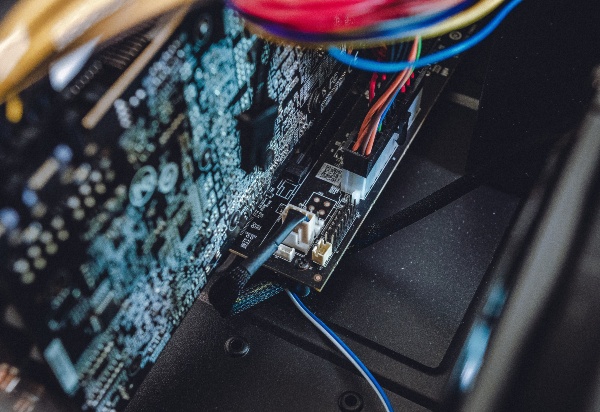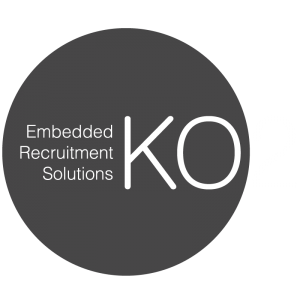Embedded systems engineering is a discipline that is becoming more and more popular as the potential of this kind of system is realised. What was once a way of connecting non-computer devices is now a kind of technology that is used in our home appliances, with plenty more opportunities for application likely to be developed in the near future.
Embedded software engineering is a key part of embedded systems technologies, bringing together aspects of classic software development with practical elements of electronics and hardware design. In this article, we explain what an embedded software engineer is, what the role involves, and the key skills required to succeed in this area.
What is Embedded Software Engineering?
Embedded software engineering is a type of engineering that involves the creation of software for embedded systems devices. It uses software engineering principles to control machines or devices that operate using embedded systems, creating programs or applications that allow these devices to function.
Embedded software allows non-computer devices to form networks with many other machines, creating systems used in everything from monitoring medical procedures to controlling traffic.
An embedded system tends to be made up of a range of machines and devices connected with microprocessors that share data and connect to a centralised system or piece of software. In its most basic form, the software needs to receive data from multiple devices, process this and then send messages to other devices in the system, but other embedded systems can perform much more complex tasks.
Embedded systems software doesn’t always require an operating system to run, but if they do then they are usually real-time (RTOS). Software for embedded systems is usually written in C or C++, unless a microcontroller is involved and then a more complex language like Python may be used instead.
A key feature of embedded software engineering is that it has fixed hardware requirements, which means adding any additional third-party hardware can be difficult. The software will also be influenced by the CPU used and the specific chips chosen to form parts of the embedded system as well.
Embedded software engineering is a discipline that may be required in a wide range of industries, from automotive manufacturing to medical robotics or security. It’s also increasingly being used in the IoT sector to create new devices.
What is an Embedded Software Engineer?
An embedded software engineer is someone who applies their knowledge of software development and engineering to embedded systems. Unlike traditional software engineers, they also have an understanding of the hardware that their software is going to run on and will develop programs specifically for these devices and machines.
The role of an embedded software engineer is a blend of electrical engineering and software development, where you not only have to think about the code that you’re writing but also the electronics that it’s going to be running on. It’s quite a specialist role, but it’s one with career opportunities in a wide range of industries, as more and more devices these days are starting to be fitted with embedded microchips.

What Does an Embedded Software Engineer Do?
An embedded software engineer will mainly be in charge of designing and installing software for embedded systems and devices. They may work as part of a team of developers on large projects and may also specialise in developing software for a specific kind of embedded device.
Here are some of the other, typical roles and responsibilities that come with an embedded software engineering role.
- Defining the specifications of new embedded systems software
- Responding to briefs and requirements for software involved in embedded systems projects
- Designing software for new embedded systems and embedded system firmware
- Building and writing the code for embedded systems software to run on specific devices and machinery
- Testing and developing embedded software to remove issues and ensure functionality
- Help to implement software architecture on embedded devices
- Ensure high levels of security and stability in embedded software
- Monitor the performance of embedded software and ensure that security, efficiency and stability are maintained
- Maintain documentation to demonstrate how the software was developed
- Create a user manual for the finished embedded software if the final system requires it
- Collaborate with other developers to build full software systems
- Provide progress reports to senior team members
- Offer insight and advice on appropriate hardware additions to an embedded system
Below are some specific kinds of embedded software engineer roles and what these involve.
Graduate Embedded Software Engineer
A graduate embedded software engineer is an entry-level position that will usually be the first embedded software role of an engineer’s career. This position will often begin with a lot of training to get the new employee up to speed on the kind of hardware they’re working with and the programs used to write the embedded software, as well as being introduced to small code-writing projects to start developing their skills.
Automotive Embedded Software Engineer
The automotive industry is somewhere where a lot of embedded technology is being used at the moment, so an automotive embedded software engineer is someone that specifically works with embedded systems used in motor vehicles. They will design embedded software that needs to be compatible with automotive hardware and work to connect different components found in vehicles like cars.
Embedded Software Design Engineer
An embedded software design engineer is a very similar role to a general embedded software engineer, but their work tends to just focus on the design stage of software development. They will be in charge of responding to briefs and creating design documents and outlines for new software, but won’t often continue with the project into the implementation, testing and debugging stage.
Embedded Software Developer
An embedded software developer similarly just focuses on one part of the software development process instead of overseeing the entire lifecycle like an embedded software engineer. They may have more technical skills and spend most of their time actually writing the code and then refining it, but may have had less of a say in the actual design of the program.
Embedded System Engineer
An embedded system engineer is less of a specialist version of embedded software engineering and more like an adjacent role, but the two often get confused which is why we are including it here for clarification. An embedded system engineer will work on designing the entire embedded system including the hardware and different devices involved in it, so often have more hands-on design skills and a background in electrical engineering.

How to Become an Embedded Software Engineer
The career path to becoming an embedded software engineer begins as early as secondary school. It can be very useful to study subjects such as maths, physics, computer science or Design Technology at A-Level, which are subjects that will often require you to get at least a c or equivalent grade in Maths and English Language at GCSE.
If you don’t decide to study A-Levels, you may take an equivalent course in a relevant subject, such as a BTEC in IT, a Higher National Diploma in Electrical Engineering or Electronics, or a Foundation degree in Engineering or Computer Science.
The majority of embedded software engineers study a relevant degree at a university to gain foundational knowledge of engineering and software development and get experience working with the kinds of software and hardware that might be involved in embedded systems. Useful subjects that you can study at a degree level include:
- Computer Science
- Electrical Engineering
- Electrical and Computer Engineering
- Embedded Systems Engineering
- Robotics and Mechatronics
Many students studying STEM degrees choose to undertake an MSc and gain a Master’s qualification, which isn’t necessary to get an embedded software engineering job but may improve your prospects. Some students also choose to study a year in industry as part of their degree, which can be a fantastic way of gaining practical skills, deciding on what kind of software engineering you enjoy and potentially getting offered a graduate job.
Embedded software engineering is quite a niche area, so you may start your career in a general software engineering or development role. This is a great way to get a solid background in lots of different kinds of software development before moving into embedded software in particular.
Alternatively, you may get a graduate job as a software engineer at a company working with embedded systems and devices, in which case you’ll be on the right track immediately.
As we’ve talked about earlier, there are several specialist roles that you can work in as an embedded software engineer, and you may go on to work with companies in particular industries such as medical engineering or transport engineering. These different industries often use very different kinds of hardware in embedded systems, so it can be very useful to specialise later in your career if you want to get really good at certain kinds of embedded software design and development.
Key Skills for Embedded Engineering
If you’re thinking about becoming an embedded software engineer, here are some of the key skills that we have found most employers are looking for when hiring for these roles.
C/C ++
C and C++ are not the only programming languages that are used to develop embedded software, but they’re definitely the most common. Therefore, if you’re applying for the majority of embedded software engineering jobs, being a competent programmer in either or both of C++ and C is a really valuable skill.
Embedded Systems Engineering
Embedded systems are a unique kind of technology that can be hard to get to grips with if you come from a class software engineering background. A good understanding of the principles and technology that are involved in embedded systems is very important if you’re hoping for a career in embedded software development.
Hardware Experience
As well as being a competent software engineer, embedded systems software design also requires you to have a solid understanding of the kinds of hardware that is used in these systems. You’ll probably gain this background if you study engineering, but you will need to be able to consider the kinds of hardware you’re working with and whether the software you’re creating is compatible in most embedded software engineer jobs.
Real-Time Operating Systems
Embedded systems operate on real-time operating systems (RTOS) because they receive data from all the devices connected by the system and process them immediately. As an embedded software engineer, you will need to have experience with these kinds of operating systems so that you can design embedded software that is going to be compatible.

Summary
Software development for embedded systems is a really exciting career that is a great choice for engineering candidates that enjoy working with both firmware and hardware. Whilst it’s a relatively niche discipline, it’s used in a broad range of sectors, so there’s plenty of variety to choose from when it comes to finding a role.
If you’re an embedded systems or software engineering candidate looking for a role like embedded software engineer, KO2 is a specialist recruiter in this industry sector that can help to find you your perfect job opportunity. Browse our available positions here or get in touch and find out more about how we can help.







